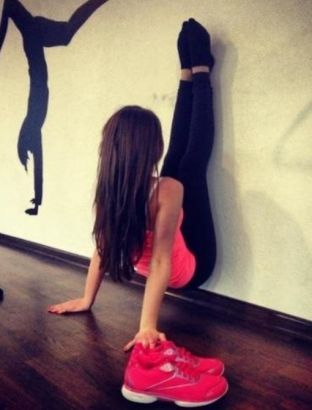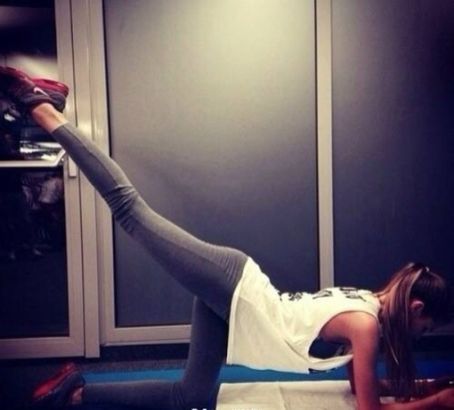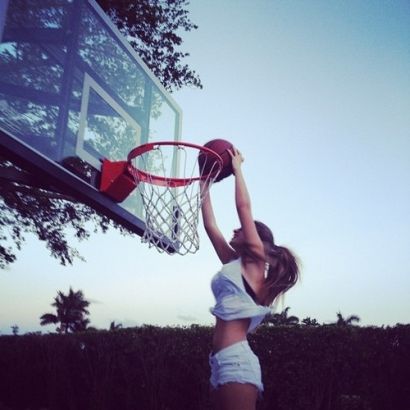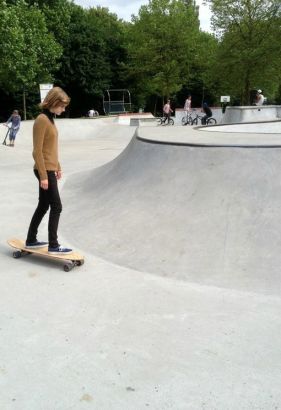双语:研究表明爱运动的女性更易成为精英
 双语:研究表明爱运动的女性更易成为精英
双语:研究表明爱运动的女性更易成为精英
 双语:研究表明爱运动的女性更易成为精英
双语:研究表明爱运动的女性更易成为精英
 双语:研究表明爱运动的女性更易成为精英
双语:研究表明爱运动的女性更易成为精英
 双语:研究表明爱运动的女性更易成为精英
双语:研究表明爱运动的女性更易成为精英
 双语:研究表明爱运动的女性更易成为精英
双语:研究表明爱运动的女性更易成为精英
 双语:研究表明爱运动的女性更易成为精英
双语:研究表明爱运动的女性更易成为精英
 双语:研究表明爱运动的女性更易成为精英
双语:研究表明爱运动的女性更易成为精英
 双语:研究表明爱运动的女性更易成为精英
双语:研究表明爱运动的女性更易成为精英
 双语:研究表明爱运动的女性更易成为精英
双语:研究表明爱运动的女性更易成为精英
 双语:研究表明爱运动的女性更易成为精英
双语:研究表明爱运动的女性更易成为精英
 双语:研究表明爱运动的女性更易成为精英
双语:研究表明爱运动的女性更易成为精英
 双语:研究表明爱运动的女性更易成为精英
双语:研究表明爱运动的女性更易成为精英
 双语:研究表明爱运动的女性更易成为精英
双语:研究表明爱运动的女性更易成为精英
 双语:研究表明爱运动的女性更易成为精英
双语:研究表明爱运动的女性更易成为精英
Earlier this year, I listened to Susan Rice, White House National Security Adviser, address the Women in the World conference in New York. Unsurprisingly, there was discussion aplenty about North Korea and the Middle East. But there was also abashed laughter about basketball. For before Rice embarked on a political career, she was a keen basketball player, playing point guard; indeed she was so obsessed with the game that she was apparently nicknamed “Spo”, short for “Sportin'”. “I loved it!” she declared。
今年早些时候,我在纽约聆听了白宫国家安全顾问苏珊?赖斯(Susan Rice)在世界妇女基金会(Women in the World)大会上的讲话。毫无意外地,她花了很多篇幅谈到朝鲜和中东。不过她也谈到了篮球,还为此不好意思地发笑。这是因为赖斯从政之前,曾是一位篮球运动爱好者,在球场上她扮演控球后卫的角色。实际上她对篮球比赛如此痴迷,以至于好像还得到了“Spo”的绰号,这是运动一词的英文缩写。她大声说:“我那时太爱篮球了!”
Just a coincidence? Perhaps not. In recent months Ernst & Young, the American consultancy, has been analysing sporting activity among senior female executives and leaders. Andit has discovered that the higher the executive level, the more likely it is that a woman played sport at high school or college. Most notably, some 19 out of 20 women who sit in the “C-suite” - holding the title “chief something” - were sporty as a teenager; indeed,seven out of 10 still play sport as a working adult, while six out of 10 played sportat university. One in eight C-suite executives played sport professionally. However, among the middle levels of working women, athletic skill was lower: just a third of mid-level women, for example, played sport at university。
不知道是不是巧合?也许不是。最近几个月,美国咨询机构安永(Ernst & Young)对资深女性主管和领导人的体育活动进行了分析。此次分析发现,女性职位越高,她在中学或大学参加体育运动的可能性就越大。最引人注目的是,每20名带着“首席”头衔的女性中,就有大约19名在少女时期十分喜爱运动。事实上,她们中每10位就有7位在成年工作后依然参加体育活动,而六成的人曾在大学参加过体育运动。每八位“首席”高管就有一位做过职业运动员。与之相比,在中层职场女性中,掌握运动技能的比例相对较低,例如只有三分之一的中层女性大学时参加过体育比赛。
Now, this survey is - admittedly - based on a small sample size (there are simply not that many C-suite women around, compared with C-suite men). And there is no comparable data for stay-at-home mums, say. Nevertheless, the statistics echo a pattern that I have noticed in my own conversations with powerful women。
必须承认,目前这项调查的样本数有点少——与“首席”男士相比,“首席”女士确实没有那么多。而且这一数据还没有把那些——比如说——家庭妇女的数据作为对照。不过,这一统计结果,确实与我自己和有权势女性打交道时,注意到的现象不谋而合。
Sportiness seems so widespread among women such as Rice that it is actually hard to think of any executive who admits to having been a couch potato as a child. Think, for example, of IMF head Christine Lagarde (a former member of France's synchronised swimming team), Condoleezza Rice (a keen figure skater in her youth) and Hillary Clinton (school baseball). Or Dilma Rousseff (the Brazilian president, who played volleyball to a high level), Indra Nooyi (the CEO of PepsiCo was a keen cricket player), Ellen Kullman (CEO at Dupont, who played basketball to a high level at college). Even Sheryl Sandberg, COO of Facebook, was formerly an aerobics instructor. And those are just examples that spring to mind。
在赖斯这类女性中,对运动的爱好看起来如此普遍,实际上,很难想象任何高管会承认她小时候只会窝在沙发上看电视。比如,国际货币基金组织(IMF)总裁克里斯蒂娜?拉加德(Christine Lagarde)曾是法国花样游泳队员,康多莉扎?赖斯(Condoleezza Rice)年轻时曾是一位花样滑冰爱好者,而希拉里?克林顿(Hillary Clinton)曾参加过学校垒球队。或者还有巴西总统迪尔玛?罗塞夫(Dilma Rousseff)——她打排球的水平很高,百事公司(PepsiCo)首席执行官卢英德(Indra Nooyi)则是一位板球爱好者,杜邦(Dupont)首席执行官柯爱伦(Ellen Kullman)在大学时打篮球曾打到极高水平。甚至还有Facebook首席运营官谢里尔?桑德伯格(Sheryl Sandberg),她曾是一位健美操教练。所有这些不过是我瞬间想到的例子。
Why? A cynic might suggest that this reflects the pressure on today's elite - of either sex - to stay slim and healthy. You need stamina to climb that corporate ladder. Having a sense of teamworkand discipline also instills skills that are useful in the workplace, for women as much as men. Or as Beth Brooke, vice-chair of Ernst & Young says: “Not only do the majority of senior women executives have sports in their background, they recognise that the behaviours and techniques learned through sports are critical to motivating teams and improving performance in a corporate environment。”
为什么会这样?愤世嫉俗的人可能会认为,这反映出如今的精英——不管是何种性别——都面临着保持身材和健康的巨大压力。在职场中向上爬需要足够耐力。拥有团队协作精神和纪律性也会潜移默化地提升那些在职场中有用的技巧,这一点对女性和男性都同样成立。或者正如安永副董事长贝斯?布鲁克(Beth Brooke)所说:“大多数资深女性主管不仅仅有过运动的经历,而且她们认识到,通过运动学到的行为方式和技巧,对于在企业中激励团队和提升业绩也至关重要。”
I suspect, however, that there is something else more important - and subtle - going ontoo. Girls who play sport at school learn at a young age that it is acceptable to compete aggressively. They also discover that success does not depend on looking good and that it can be acceptable to take pleasurein winning. That might seem an obvious point, at least to an adult man. But it is not so self-evident to young girls who are exposed to modern Hollywood teen - or tweenie - culture. Indeed, when I lookat the cultural messages that kids receive now from films and television, compared with my own childhood, I suspect thatgirls need sports today more than ever. Beingan athlete is one of the few socially accepted ways for teenage girls to compete, without peer criticism。
不过,我怀疑这背后还有什么更重要和更微妙的因素在起作用。在学校里参加体育比赛的女孩在年轻时就认识到,激进的竞争方式是可以接受的。她们还会发现成功并不依赖于“看上去很乖”,从取胜中获得快乐不是坏事。这一点也许看起来十分明显,至少对成年男性来说就是如此。但是对于那些饱受当代好莱坞青少年文化影响的年轻女孩来说,这就不那么不言自明了。事实上,当我考察孩子们如今从影视中吸收到的文化信息,将它与我自己的童年时代相比较的时候,我感觉如今的女孩比过去更需要运动。对少女来说,参加运动是社会接受的少数竞争参与方式之一,而不会受到同龄人的指责。
This has at least two implications. First, it may suggest that if we want to find more futurefemale business and civic leaders, we should lookmore closely at athletes. Historically, professional women athletes tend to be steeredto coaching or commentators' jobs whentheir sporting careers dim. However, Brooke of E&Y is now trying to create a networkto turn more of them into entrepreneurs, and it will be interesting to see ifthis produces any results。
这至少有两层含义。首先,这可能意味着,如果我们想要找到更多未来的女性商界和政界领导人,就应该更密切关注运动员。历史上,职业女性运动员在运动生涯结束后,通常会转去做教练或评论员之类的工作。不过,安永的布鲁克正试图建立一个网络,让她们更多进入企业界,我将对此事的结果拭目以待,一定很有趣。
But second - and most obviously - we need tokeep young girls playing sport. In my case, I was lucky enough to grow up competing extensively (lacrosse and netball were my passion). I am now trying to ensure that my own daughters do so too. However, this is a luxury of sorts. As public educational budgets get squeezed - and cyber distractions grow - it is becoming harder, not easier, for many girls to do team sports. That is a tragedy. If we want to get more strong female leaders, we must celebrate competition at a young age. Or, at least, teach them the links between struggle and success; even - or especially - in an age of instant gratification where kids prefer to say “don't sweat it”。
不过第二点,也是最明显的一点,就是我们必须让年轻女孩多多运动。就我自己来说,我运气不错,成长的过程中参加了大量比赛,我最喜欢的运动是兜网球和英式篮球。如今我正努力确保自己的女儿也参加大量运动。不过,这在某种程度上是个奢望。由于公共教育开支遭到削减,网络又越来越分散人们的注意力,对许多女孩来说,参加团体运动正变得更加困难,而不是更容易。这真是一场悲剧。如果我们想要培养更强悍的女性领导人,就必须让女性从年轻时起就喜欢竞争。或者至少,我们要让她们了解到奋斗与成功间的联系——即使这是个图一时之快、孩子们喜欢说“别费那个劲了”的时代。或者说,尤其因为如此,我们更要教会她们这一点。
- 全球体坛美人TOP3:运动员原来都是美女(双语)2015-07-28 13:30
- 运动达人双语减肥法 迅速燃脂瘦身(组图)2015-07-17 14:17
- 每天多吃些浆果:不运动就能瘦(双语)2015-07-10 09:50
- 当音乐遇上运动 找寻属于自己的节奏(组图)2015-07-07 15:23
- 运动方式暴露性格:爱游泳的人偏整洁(双语)2015-06-26 08:43

